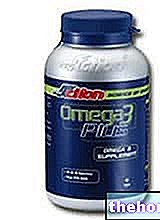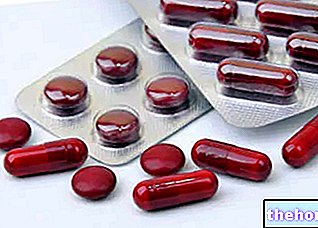Generality
Chondroitin sulfate is a macromolecule belonging to the family of glycosaminoglycans, known for the valuable structural role of the extracellular matrix.

With molecular mechanisms not yet fully known, chondroitin sulphate could improve the functionality of joints affected by inflammatory events, such as osteoarthritis, preventing their degeneration.
Indications
Why is Chondroitin Sulfate used? What is it for?
Chondroitin sulphate is a macromolecule belonging to the category of Glycosaminoglycams.
These molecules are part of the normal constitution of the extracellular matrix of connective tissues, in particular in the structure of the aggrecans of the articular cartilage.
Aggrecans give the articular cartilage a certain flexibility and deformability, resistance to traction and torsion, and the ability to absorb shocks and trauma.
When the intra-articular content of chondroitin, hyaluronic acid and other molecules such as glucosamine tends to decrease, the joint loses the aforementioned properties, becoming inflamed and degenerating.
For these reasons the use of Chondroitin sulfate could:
- Contribute to the structural and functional maintenance of the joint;
- Confer a certain chondroprotective activity;
- Reduce pain in the course of degenerative diseases, such as osteoarthritis;
- Reduce joint inflammation and improve joint mobility in pathologies such as osteoarthritis.
Properties and Effectiveness
What benefit has chondroitin sulfate shown during the studies?
Numerous studies, with unfortunately not entirely unanimous results, have investigated the possible role of Chondroitin sulphate, alone or in association with other molecules such as Glucosamine, in controlling joint degeneration observed in inflammatory pathologies such as osteoarthritis.
In some clinical trials, statistically relevant, the appropriate integration of Chondroitin sulfate would have:
- Reduced joint pain in the knee during osteoarthritis;
- Improved mobility of the joint involved in the inflammatory process;
- Checked the functional and structural degeneration of the joint;
- Reduced the use of non-steroidal anti-inflammatory drugs.
These results would have been recorded exclusively in the course of inflammatory diseases of the joint such as osteoarthritis, and not in healthy subjects with joint pain.
Recently, a new emerging activity of Chondroitin sulphate has been proposed by some researchers, which would see it engaged in the anti-atherosclerotic action. More precisely, the use of Chondroitin sulphate supplements would have resulted in an improvement in vascular lesions and a lowering of blood cholesterol concentrations.
Dosage and method of use
How to use chondroitin sulfate
The dosages of chondroitin sulfate most used in studies generally reach 1,200 mg per day.
The activity of this molecule could be assisted by the simultaneous intake of Glucosamine and hyaluronic acid.
From the pharmacokinetic point of view, the best results would have been obtained with low molecular weight chondroitin sulphate supplements, able to reach the synovial environment with greater tropism.
Side effects
The side effects described following the use of Chondroitin sulphate are generally of modest entity.
Epigastric pain, swelling, nausea and sometimes diarrhea were the most frequently observed adverse reactions.
Contraindications
When should chondroitin sulfate not be used?
The use of chondroitin sulphate is contraindicated in patients hypersensitive to the active ingredient.
Pharmacological interactions
What drugs or foods can modify the effect of chondroitin sulfate?
At present, there are no known drug interactions worth mentioning, despite the potential antithrombotic role of chondroitin sulfate.
However, the simultaneous intake of Chitosan could reduce intestinal absorption of Chondroitin sulphate.
Precautions for use
What do i need to know before taking chondroitin sulfate?
The use of supplements based on chondroitin sulphate should be avoided, given the absence of studies in this regard, during pregnancy and in the subsequent period of breastfeeding.
Given the ability of chondroitin sulphate to carry out a potential antithrombotic activity, the use of these supplements should take place under strict medical supervision in patients receiving anticoagulant drugs or suffering from coagulation diseases such as haemophilia.






-e-ruscogenina.jpg)





















